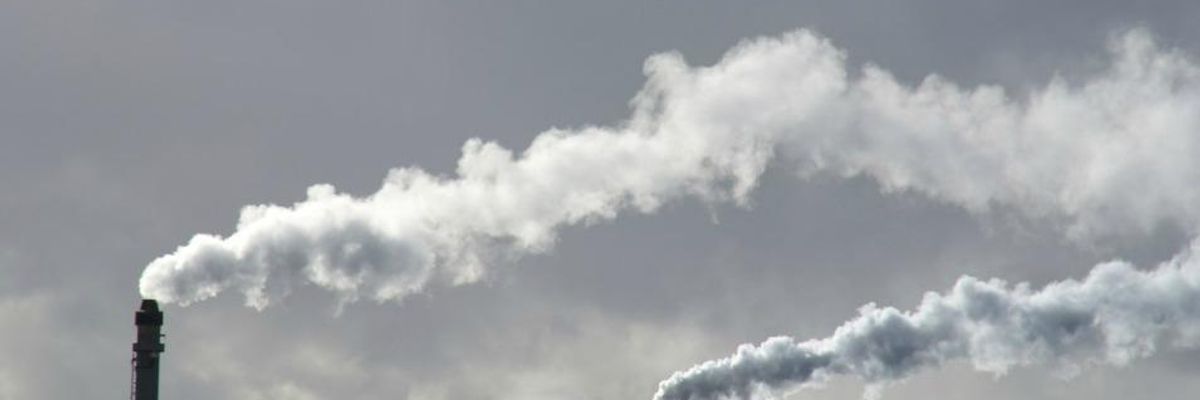The World Meteorological Organization (WMO), the climate arm of the United Nations, said on Monday that climate change is occurring at an "alarming rate" and that world leaders must act to curb greenhouse gases now, "before we pass the point of no return."
After 2015 broke all previous global average surface temperature records, WMO is releasing its State of the Climate report with the dire warning that the year "will stand out in the historical record of the global climate in many ways."
"The alarming rate of change we are witnessing in our climate as a result of greenhouse gases is unprecedented in modern record," WMO secretary-general Petteri Taalas wrote in the report. "Our planet is sending a powerful message to world leaders to sign and implement the Paris agreement on climate change and curb greenhouse gases now before we pass the point of no return."
According to Dr. Sarah Perkins-Kirkpatrick, who spoke with the Guardian on Monday, the language of the report is unusually powerful for the WMO.
"We have to put this report in context," she said. "2014 was the hottest year on record to date too. We've had something like 15 out of the 16 hottest years on record since the turn of the millennium. Things aren't getting better, they're getting much much worse, and the tone of the report reflects this."
WMO states:
January and February 2016 set yet more new monthly temperature records, with the heat especially pronounced in the high northern latitudes. Arctic sea ice extent was at a satellite-record low for both months, according to NASA and the U.S. National Oceanic and Atmospheric Administration. Greenhouse gas concentrations crossed the symbolic and significant 400 parts per million threshold.
David Carlson, director of the WMO-sponsored World Climate Research Program, added that the "startlingly high" temperatures seen so far in 2016 "have sent shockwaves around the climate science community."
Strong language regarding climate has become alarmingly common, as the Guardianpoints out in a separate piece published Monday, in which reporter Dana Nuccitelli rounds up some of the recent words scientists have used to describe temperature in 2016, including "stunning," "wow," "shocker," "bombshell," "astronomical," "insane," and "unprecedented."
"We're capable of solving the climate problem, but with temperatures already approaching dangerous thresholds, the time to act is now," Nuccitelli wrote.

